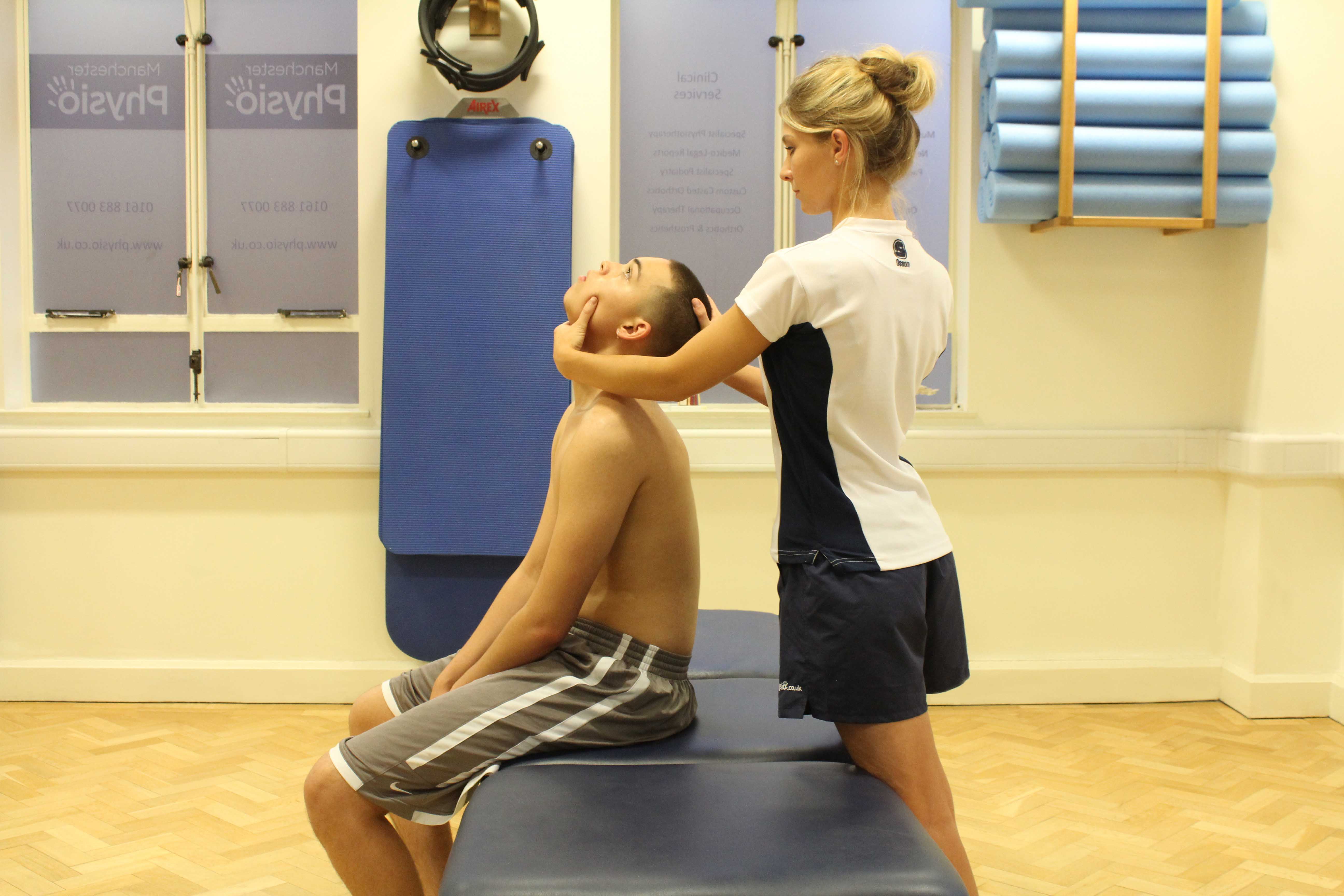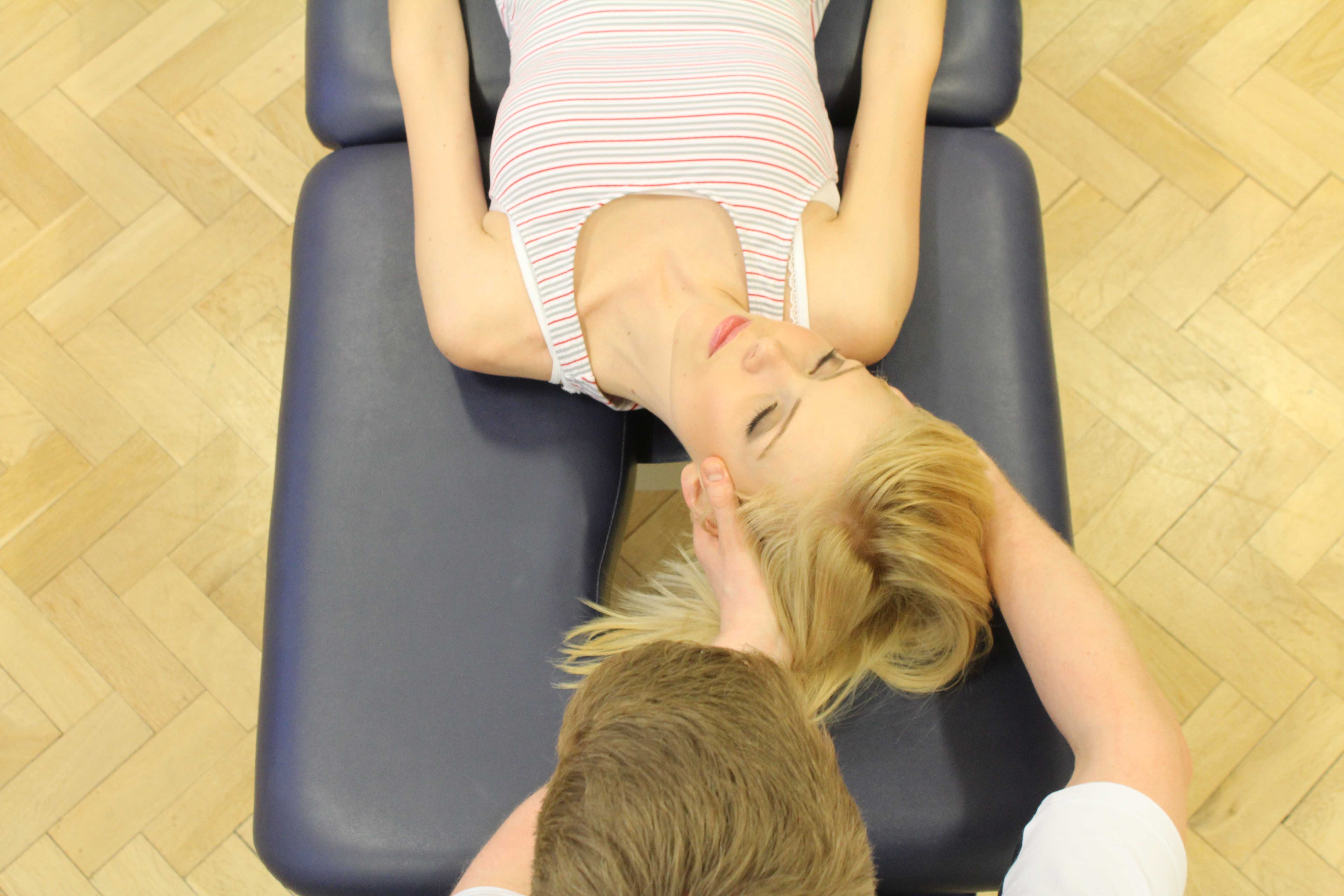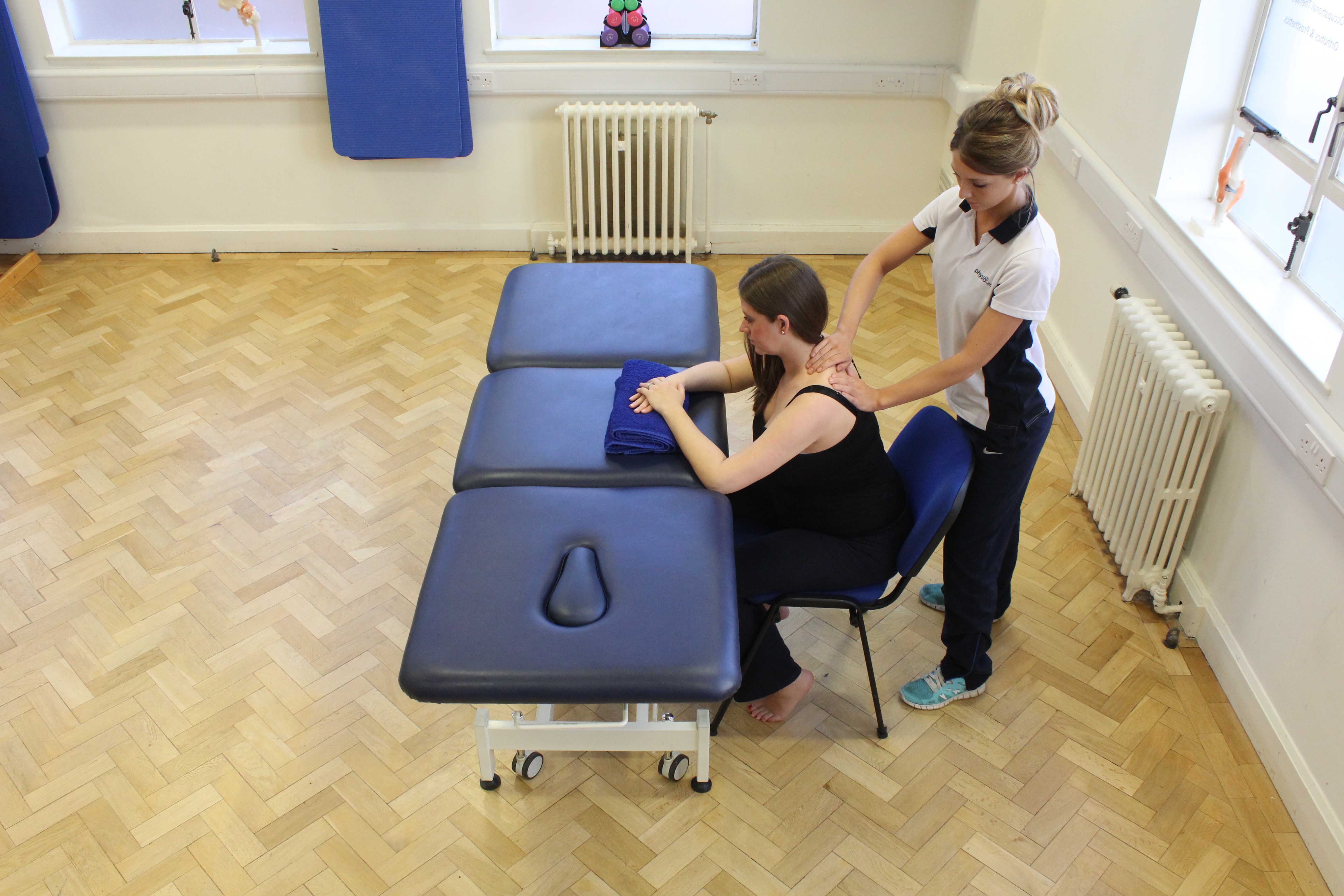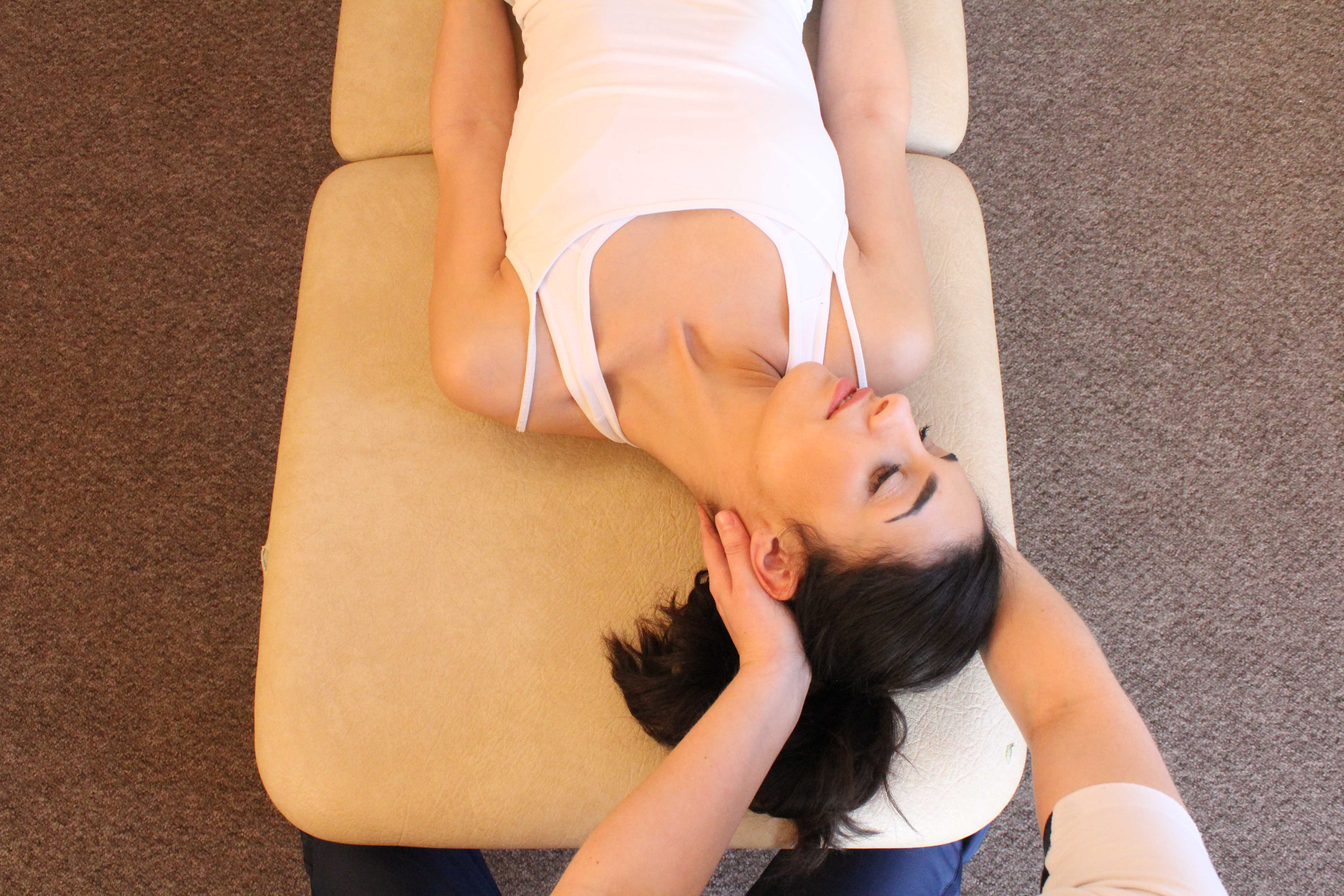What is a postural kyphosis?
A kyphosis is the natural outward curve of the thoracic spine (upper back) which helps to provide support and movement to the spine. When this curve over-exaggerated because of poor posture this is known as postural kyphosis. Physiotherapy is an excellent treatment of postural kyphosis.
 Above: Soft tissue massage to the upper back performed by specialist therapist
Above: Soft tissue massage to the upper back performed by specialist therapistWhat can cause a postural kyphosis?
Poor standing postures and slouched sitting positions for long period of time causes extra strain on the joints and soft tissue structures of the upper back, neck and shoulders. The structures commonly affected includes muscles, ligaments and tendons. These postures are common in office workers and individuals whose jobs involve long periods of driving and sitting. Postural kyphosis is also common in athletes who have to maintain these postures for long periods of time such as cyclists, lacrosse and hockey players.
What are the symptoms of a postural kyphosis?
Symptoms of postural kyphosis usually only occurs if poor posture is maintained for a long period of time and not during normal everyday activities. Pain and stiffness may be felt in the upper back and neck regions and muscle spasm may be seen around these areas. Aching or burning feelings are also common and these are usually reduced with a change in position. Other symptoms include:
 Above: Deep tissue massage applied to the latissimus dorsi muscle of the upper back
Above: Deep tissue massage applied to the latissimus dorsi muscle of the upper backWhat should I do if I have a postural kyphosis?
Physiotherapy can successfully correct poor posture and therefore minimise your symptoms and help you return to a normal active lifestyle. You should avoid activities that encourage a poor posture and remember to actively correct your posture. It is important that you take regular breaks from long periods of sitting or standing to help mobilise your spine.
What shouldn’t I do if I have a postural kyphosis?
You should not ignore your symptoms if you think you may have postural kyphosis. The longer the poor posture continues, the more difficult it will become to rectify the situation. You should try not to sit or stand for long periods at a time and if this has to be done at work, ensure that you have regular changes in position.
 Above: Soft tissue massage of the upper back muscles
Above: Soft tissue massage of the upper back musclesPhysiotherapy for a postural kyphosis
Heat rubs and hydrotherapy are useful to reduce muscle spasm and pain. Gradual range of movement and strengthening exercises are used in combination with postural exercises and advice. An ergonomic assessment in your workplace will help you be aware of your posture at work and whether you have the correct seating and desk height to encourage a good posture. Other physiotherapy treatments include:
Can postural kyphosis have any long-term effects?
The longer you ignore symptoms of postural kyphosis, the longer it will take to achieve a successful postural correction. If the symptoms become very severe, there may be added pressure on nearby nerves causing neurological symptoms such as pins and needles, numbness and weakness in certain muscle groups. These symptoms are more persistent and difficult to resolve. Physiotherapy can help with all of these symptoms.
 Above: Trigger point massage of upper back muscle
Above: Trigger point massage of upper back muscleTo arrange a physiotherapy appointment call Physio.co.uk on 0330 088 7800 or book online.

 0330 088 7800
0330 088 7800

































